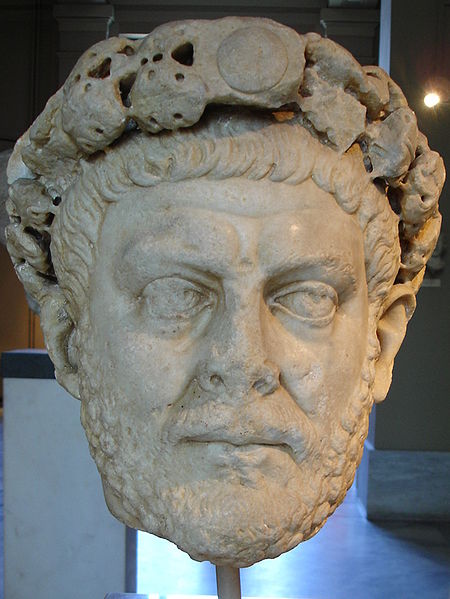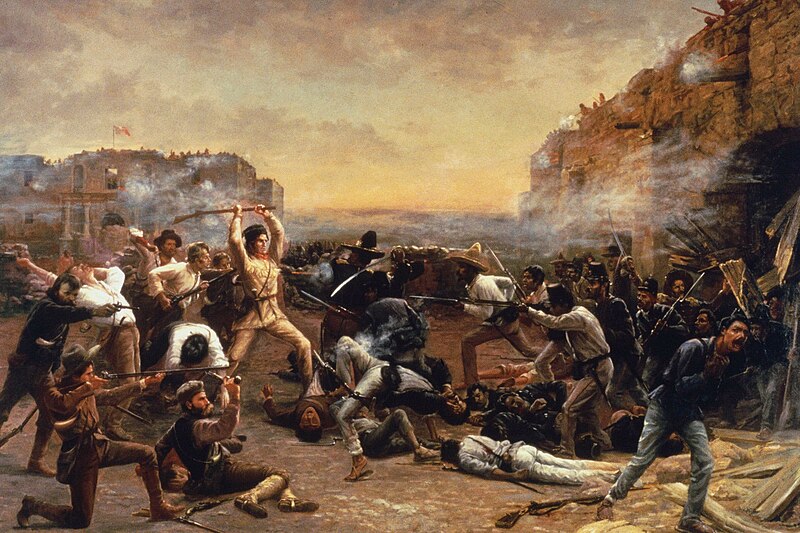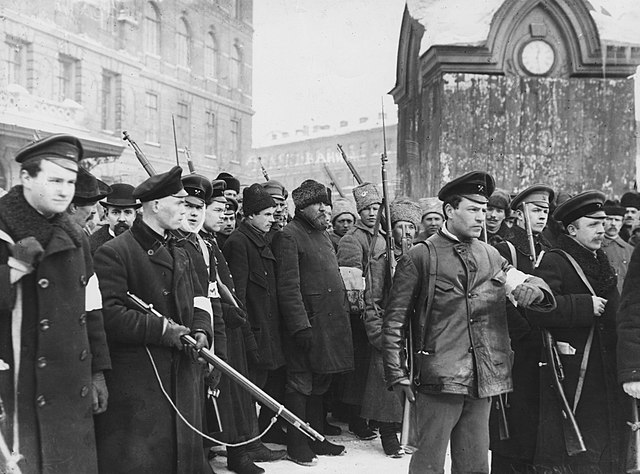This article offers a concise overview of key historical events that occurred on February 23rd, highlighting their significance and impact across various periods.
It traces pivotal moments from the harsh persecution of Christians under Roman Emperor Diocletian in 303, through groundbreaking achievements like the publication of the Gutenberg Bible, to transformative political events such as the EuroMaidan revolution in Ukraine in 2014.
By examining these events in a chronological narrative, the article provides insights into the multifaceted ways in which these occurrences have shaped the course of human history.
February 23rd Events in History
303 – Roman Emperor Diocletian orders the destruction of the Christian church in Nicomedia, marking the start of the Diocletianic Persecution
This event marked the beginning of the last and most severe persecution of Christians in the Roman Empire. Diocletian’s edict led to the destruction of churches, the burning of Christian texts, and the imprisonment or execution of Christians who refused to renounce their faith.
Also Read: February 22 – On this Day in History
This persecution extended across the empire, lasting until 313 AD when the Edict of Milan granted religious freedom. The Diocletianic Persecution is significant for its impact on the early Christian Church, shaping its narratives of martyrdom and sanctity.

1455 (Approximate) – Traditional date for the publication of the Gutenberg Bible, the first Western book printed with movable type
Often cited as occurring around February 23, 1455, the Gutenberg Bible, printed by Johannes Gutenberg in Mainz, Germany, represents a milestone in the history of printing.
It was the first major book printed using movable type technology in the West, heralding the start of the “Gutenberg Revolution” and the age of the printed book.
The Gutenberg Bible had profound effects on education, literature, and religion, significantly contributing to the spread of knowledge and the Reformation.
1574 – The Fifth Holy Roman War, which started in 1551, ends with the Peace of Amboise. The war was primarily fought in France, involving the French Huguenots and Catholics
The Fifth Holy Roman War, part of the wider Wars of Religion in France, concluded with the Peace of Amboise in 1574. This peace agreement partially restored the freedoms of the Huguenots (French Protestants) that had been eroded since the previous treaties.
Also Read: February 24th Events in History
While it did not put a permanent end to religious conflicts in France, it provided a temporary respite from the violence and allowed for a degree of religious coexistence under the French monarchy.
1836 – The Siege of the Alamo begins in San Antonio, Texas
On February 23, 1836, Mexican troops under General Antonio López de Santa Anna laid siege to the Alamo, a mission in San Antonio, Texas, defended by a small group of Texan independence fighters.
The siege lasted for 13 days and ended in a Mexican victory, with all of the Alamo defenders killed. The Battle of the Alamo became a symbol of resistance and a rallying cry (“Remember the Alamo!”) in the Texan struggle for independence from Mexico, culminating in the establishment of the Republic of Texas.

1847 – Mexican–American War: Battle of Buena Vista
Fought near Monterrey in Northern Mexico, the Battle of Buena Vista (February 22-23, 1847) was one of the most significant engagements of the Mexican–American War.
American forces, commanded by General Zachary Taylor, were heavily outnumbered by the Mexican army led by General Antonio López de Santa Anna.
Despite the odds, Taylor’s forces managed to hold their ground and inflict heavy casualties on the Mexican army, forcing Santa Anna to withdraw. The victory at Buena Vista boosted Taylor’s national profile, eventually propelling him to the presidency of the United States.
1854 – The official independence of the Orange Free State is declared
The Orange Free State, located in the region now known as South Africa, declared its independence from British control on February 23, 1854. This followed the signing of the Bloemfontein Convention, which recognized the independence of the Boer settlers in the region, establishing the Orange Free State as a sovereign republic.
The republic was one of several Boer states in southern Africa, characterized by its agricultural economy and a system of government that initially restricted citizenship and voting rights to white males.
The Orange Free State played a significant role in the later South African Wars (Boer Wars) before being incorporated into the Union of South Africa as a province in 1910.
1886 – London Times publishes the world’s first classified ad
On February 23, 1886, The London Times took a step that would change the nature of newspaper advertising by publishing what is considered the world’s first classified advertisement.
This innovation allowed individuals and businesses to place small, targeted ads in the newspaper, reaching a wide audience. The concept quickly spread globally, transforming advertising strategies and significantly influencing the economic model of newspapers and other publications.
1898 – Émile Zola is imprisoned in France after writing “J’accuse”, a letter accusing the French government of antisemitism and wrongfully imprisoning Alfred Dreyfus
Émile Zola, a prominent French novelist, was convicted of libel and imprisoned in 1898 following the publication of his open letter, “J’accuse…!”, in L’Aurore newspaper.
In the letter, Zola accused the French government and military of antisemitism and unlawfully imprisoning Alfred Dreyfus, a Jewish French army captain wrongly convicted of espionage.
Zola’s actions brought widespread public attention to the Dreyfus Affair, eventually leading to Dreyfus’s exoneration. “J’accuse” is seen as a defining moment in the promotion of justice, press freedom, and the power of individuals to effect change in society.
1903 – Cuba leases Guantánamo Bay to the United States “in perpetuity”
In the aftermath of the Spanish-American War, the 1903 Cuban-American Treaty was signed, allowing the United States to lease Guantánamo Bay from Cuba for use as a naval base.
The lease agreement specified that Cuba would retain ultimate sovereignty over the territory but granted the United States complete jurisdiction and control “in perpetuity” as long as it used the area as a coaling and naval station.
The presence of the U.S. naval base at Guantánamo Bay has been a point of contention in U.S.-Cuba relations, especially after its use as a detention facility for suspected terrorists in the early 21st century.
1905 – Chicago Attorney Paul Harris and three other businessmen meet for the first time to form the Rotary Club, the world’s first service club
On February 23, 1905, Paul Harris met with three business colleagues in Chicago to form the first service club in the world, the Rotary Club. The idea was to create an organization where professionals with diverse backgrounds could exchange ideas and form meaningful, lifelong friendships.
The name “Rotary” was derived from the initial practice of rotating meetings among the offices of each member. The concept of service and community engagement espoused by the Rotary Club gained popularity rapidly, leading to the establishment of Rotary International, which now has thousands of clubs worldwide dedicated to humanitarian service, ethics in business, and the promotion of peace.

1917 – First demonstrations in Saint Petersburg, Russia. The beginning of the February Revolution (Julian calendar; March 8 in the Gregorian calendar)
On February 23, 1917 (March 8 in the Gregorian calendar), the February Revolution began with demonstrations and strikes in Saint Petersburg, Russia. This marked the first phase of the Russian Revolution of 1917.
The immediate cause of the protests was the scarcity of food and the deteriorating conditions faced by the city’s workers, but underlying discontent had been brewing for years due to Russia’s continued involvement in World War I, economic instability, and demand for political reform.
The demonstrations quickly escalated, leading to the abdication of Tsar Nicholas II within weeks and the end of the Romanov dynasty, which had ruled Russia for over three centuries. The February Revolution paved the way for the Bolshevik Revolution later that year, which brought Vladimir Lenin and the Bolsheviks to power.
1941 – Plutonium is first produced and isolated by Dr. Glenn T. Seaborg
On February 23, 1941, American chemist Dr. Glenn T. Seaborg and his team at the University of California, Berkeley, successfully produced and isolated plutonium for the first time. This groundbreaking achievement was part of the larger Manhattan Project, which aimed to develop nuclear weapons during World War II.
Plutonium, specifically the isotope Plutonium-239, proved to be a critical component in the construction of nuclear bombs, including the one dropped on Nagasaki, Japan, in 1945. Seaborg’s work not only had profound implications for the outcome of the war but also for the future of energy production and the onset of the nuclear age.
1945 – World War II: The capital of the Philippines, Manila, is liberated by combined Filipino and American forces
In a pivotal moment of World War II, Manila, the capital of the Philippines, was liberated from Japanese occupation by combined Filipino guerrilla forces and the American military in February 1945.
The battle for Manila was one of the most intense urban fighting in the Pacific theater, leading to significant civilian casualties and widespread destruction of the city. The liberation of Manila marked a crucial step in the Philippines’ path to full independence from foreign powers and the end of Japanese efforts to maintain control over the region.
1954 – The first mass inoculation of children against polio with the Salk vaccine begins in Pittsburgh, USA
On February 23, 1954, a significant milestone in medical history was achieved with the start of the first mass inoculation of children using the polio vaccine developed by Dr. Jonas Salk.
The trials began in Pittsburgh, USA, and marked the beginning of the end for the poliovirus epidemic that had plagued the world, particularly affecting children with paralysis and death.
The success of the vaccine trials led to the widespread use of the Salk vaccine, dramatically reducing the incidence of polio across the globe and paving the way for future vaccination campaigns against various diseases.
1980 – Iran hostage crisis: The United States announces that it is severing diplomatic relations with Iran and imposes economic sanctions
In response to the ongoing hostage crisis, where 52 American diplomats and citizens were held hostage in Tehran since November 4, 1979, the United States officially severed diplomatic ties with Iran on February 23, 1980.
This drastic measure included the imposition of economic sanctions against Iran, aiming to pressure the Iranian government into releasing the hostages. The crisis had begun when militants stormed the U.S. Embassy in Tehran in support of the Iranian Revolution.
The hostages were ultimately held for 444 days, significantly impacting U.S.-Iran relations for decades to come and becoming a pivotal moment in the history of both countries.
1981 – In Spain, Antonio Tejero attempts a coup d’état by capturing the Spanish Congress of Deputies
On February 23, 1981, Lieutenant Colonel Antonio Tejero, along with members of the Spanish Civil Guard, stormed the Spanish Congress of Deputies during a vote to elect a new Prime Minister.
This dramatic event, known as the 23-F coup attempt, aimed to overthrow the democratic government and reinstate a military regime similar to Francisco Franco’s dictatorship.
The coup was ultimately unsuccessful, thanks in part to King Juan Carlos’s decisive support for the democratic process, which he expressed in a nationally televised address. The failed coup reinforced Spain’s commitment to democracy and is considered a turning point in modern Spanish history, solidifying the transition to democracy after Franco’s rule.
1991 – In Thailand, General Sunthorn Kongsompong leads a bloodless coup d’état, overthrowing Prime Minister Chatichai Choonhavan
On February 23, 1991, Thailand experienced a bloodless coup led by General Sunthorn Kongsompong and other military leaders. The coup resulted in the removal of Prime Minister Chatichai Choonhavan, whose administration was accused of widespread corruption and economic mismanagement.
The military justified the takeover by claiming it was necessary to restore order and improve governance. This event marked another chapter in Thailand’s long history of military coups, reflecting the ongoing tensions between military authority and civilian rule in the country’s political landscape.
1998 – Osama bin Laden publishes a fatwa declaring jihad against all Jews and Crusaders
On February 23, 1998, Osama bin Laden, the leader of the terrorist organization al-Qaeda, issued a fatwa or religious edict, titled “The Nuclear Bomb of Islam,” which declared jihad (holy war) against all Jews and “Crusaders” (a term used to refer to Western Christians, particularly Americans).
This declaration was a call to arms for Muslims around the world to join in a global fight against the United States and its allies, claiming that the occupation of Muslim lands and the oppression of Muslims justified such a war. This fatwa significantly raised the profile of bin Laden and al-Qaeda, setting the stage for future terrorist attacks, including the September 11 attacks in 2001.
2005 – The Slovak Republic applies for membership in the European Union
On February 23, 2005, Slovakia formally applied to join the European Union, marking a significant step in the country’s integration into European political and economic structures.
Slovakia’s application was part of a broader wave of expansion for the EU, which sought to include countries from Central and Eastern Europe that had transitioned from communist rule to democratic governance and market economies.
Slovakia’s accession to the EU, completed in 2004, was seen as a milestone in the country’s post-communist development, offering access to the single market, structural funds, and the opportunity for deeper political and economic integration with Western Europe.
2014 – EuroMaidan revolution: Ukrainian parliament votes to remove President Viktor Yanukovych from office
On February 22, 2014, amidst the EuroMaidan protests, the Ukrainian parliament voted to remove President Viktor Yanukovych from office. This decision came after months of civil unrest and protests in the capital, Kyiv, and across Ukraine, initially sparked by Yanukovych’s refusal to sign an association agreement with the European Union, opting instead for closer ties with Russia.
The protests rapidly expanded into a broader movement demanding political reform, anti-corruption measures, and greater European integration. Yanukovych’s removal marked a turning point in the crisis, leading to the annexation of Crimea by Russia and the pro-Russian unrest in Eastern Ukraine, significantly impacting Ukrainian politics and relations with Russia and the West.
